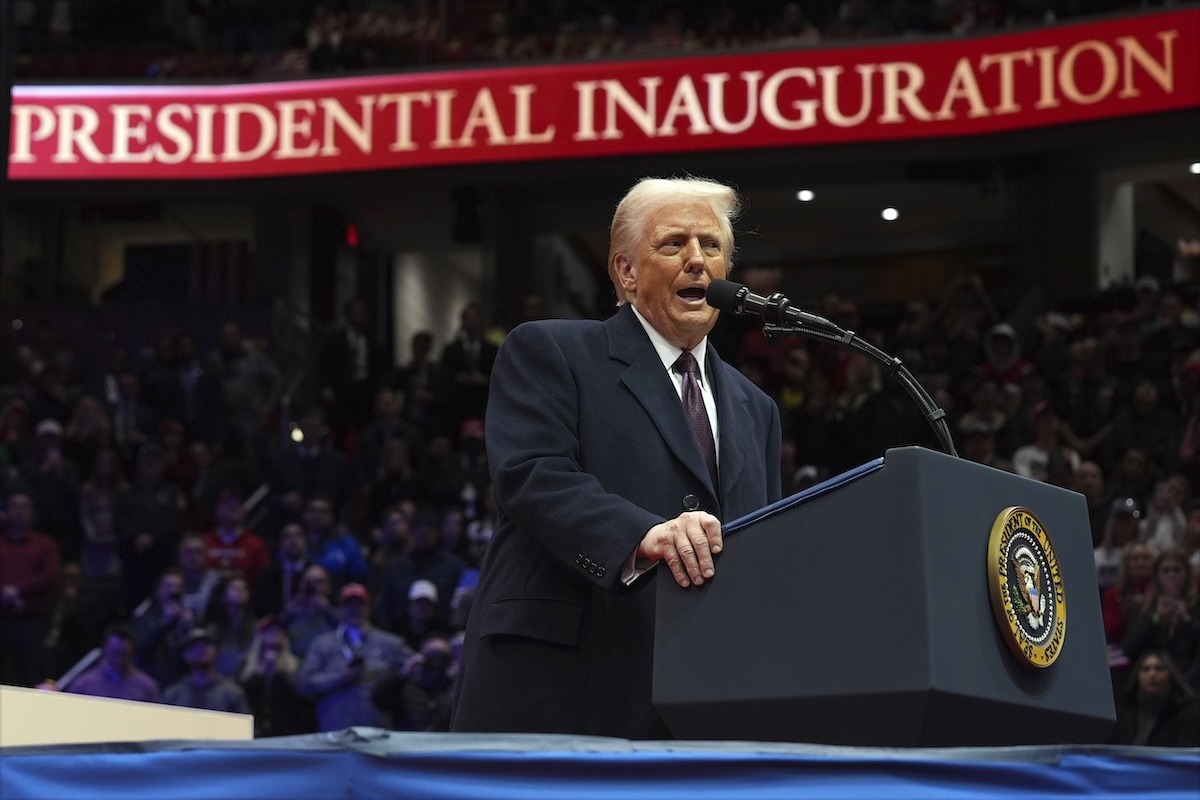When we think of history-making events, we often assume progress, that each milestone moves us forward. But history is not always written in triumph. Sometimes, it deconstructs decades of hard-fought rights and protections.
As inauguration weekend approached, I’d been asked repeatedly why, as a Black woman, I wanted to cover it. I can “sit this one out,” some insisted, because Black women have done their job.
But to witness history unfold in real time is both an honor and a responsibility. This inauguration was not just about Donald Trump taking office—but about what kind of future my children will inherit. It marked an opportunity to document a pivotal chapter in world history through the lens of a mother, a journalist, and a Black woman in a nation that is struggling with its past and present.
On January 20th, America swore into office its first-ever convicted felon as President, a stark reflection of the nation’s political and moral reckoning. As the new administration settles in, rallying behind the slogan, “Make America Great Again,” marginalized communities ask: great for whom?
On the plane, I sat next to a woman of Asian descent. We had a brief discussion about the inauguration, which she said she was “skipping” to visit family instead. With a look of defeat, she whispered, “Whether we like it or not, Donald Trump is about to become the 47th President.”
In D.C., I learned that press access to the inauguration—moved inside the Capitol Rotunda given the blistery conditions outside—would be limited. Under an administration that has openly romanticized the pre-Civil Rights era as a time when America was “great,” why would I expect the Black Media to be prioritized as one of the outlets granted entry?
Meanwhile, I was receiving emails confirming my attendance at the 16th Annual 2025 Peace Ball, a recurring event around the U.S. presidential inauguration intended to energize and inspire artists and activists determined to strengthen America’s democracy.
I would be attending the “Infinite Hope”–themed ball, which opened with a performance of “Ella’s Song” by the acapella ensemble Sweet Honey in the Rock. From Democratic Congress members like Rashida Tlaib to local activists across the nation to revolutionary icon and professor, Angela Davis, nothing about this crowd seemed defeated.
“The only people who are going to fight for us the way we need are us!,” Congresswoman Cori Bush remarked when I asked her what she would say to those who did in fact feel defeated.
She went on to discuss the reasons for optimism, particularly how struggle gives birth to activism. “The change that’s needed is present… the next Dr. Martin Luther King Jr. is out there, rising from the ashes.”
The next day, I stood outside Capital One Arena watching Trump’s speech unfold, how in the same breath, the president spoke of unity and of making Dr. Martin Luther King Jr. ‘s dream come true while promising to sign “a series of historic executive orders,” one of which dismantles federal Diversity, Equity and Inclusion (DEI) programs.
He then painted a picture of lawlessness driven by immigrants, a narrative designed to stoke fear and that ignores where some of the greatest threats to democracy have in fact most recently come from.
While some Latinos, Asians, and others I spoke with feared what the coming hours would bring for immigrants, others spoke of the optimism they felt about the economy, believing that Trump’s policies would improve job opportunities and reduce inflation.
Most Black men and women I spoke with— there were few Black Americans in the crowd—chose instead to focus on celebrating the life of Dr. Martin Luther King Jr. “We—the 92% of Black women who voted for Kamala—did our part.”
Not one white person let me interview them, even after showing them my press badge.
I eventually decided to watch the rest of the day’s events from the comfort of my hotel. As I climbed into my Uber, my hands nearly frozen from the cold, a deep sadness settled over me.
Even as some greet Trump’s promise of prosperity and his expansionist vision of the country with unbridled optimism, many others are girding themselves for the fight to come over basic rights and freedoms, and their place in this society.
As a Black woman living in the red state of Texas, it is hard for me to see this transition as anything but a step back. It’s difficult to feel hopeful when I know that one day, I will have to sit down with my two little Black children—whom I am raising with morals and values that stand in stark contrast to the country they live in—and explain why “liberty and justice” isn’t for all.
DeNeshia Bell is a Houston-based freelance journalist and the National Social Media Correspondent for NNPA|Black Press of America. She writes under the moniker TotallyRandie. You can find more of her work here.
Feature image via Rawpixel




